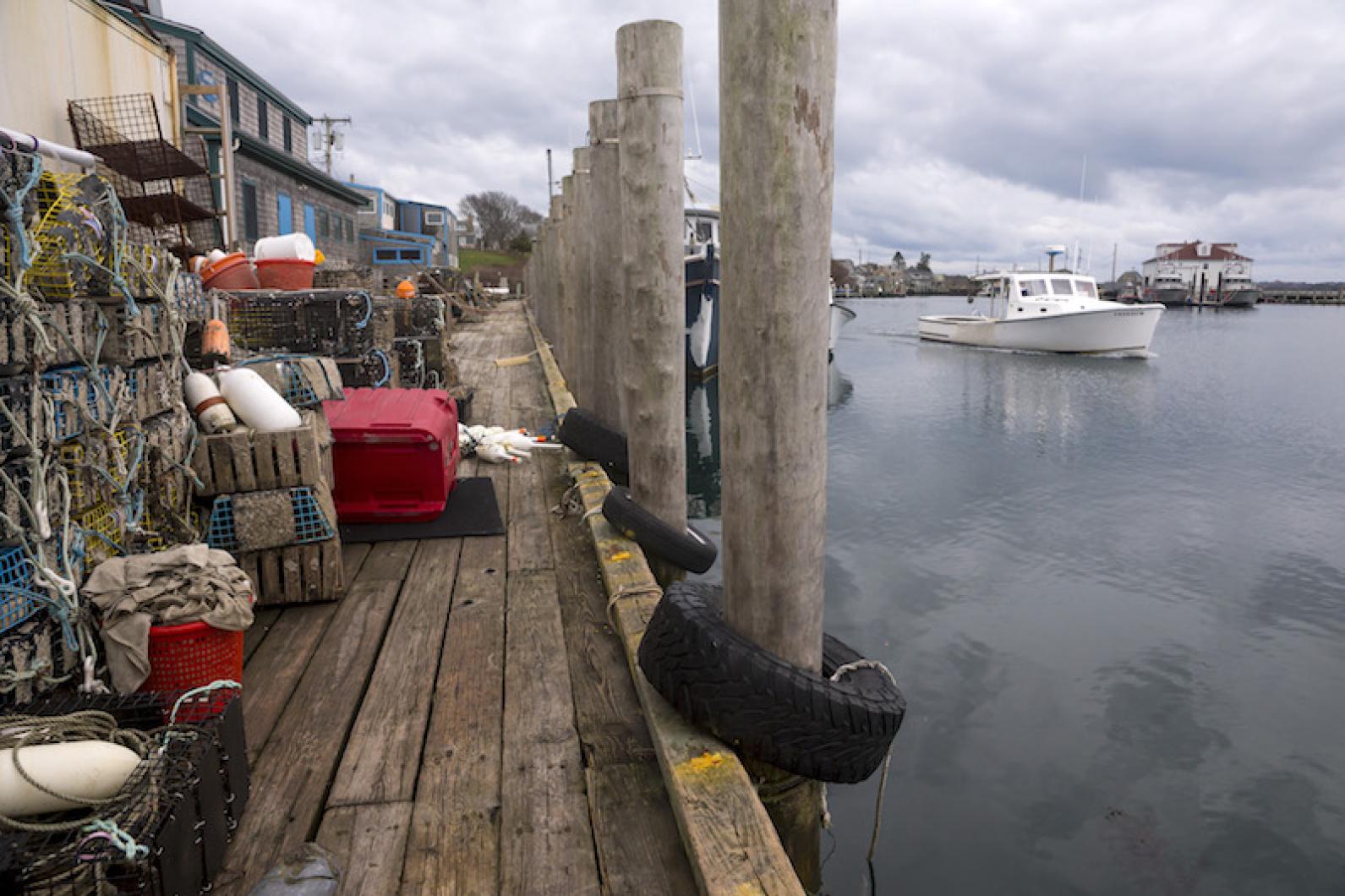With the North Atlantic right whale population at a dangerously low ebb, the state Division of Marine Fisheries is proposing a statewide seasonal ban on lobstering in a last-chance effort to save the critically endangered species from extinction.
Floated by the DMF during public hearings on Dec. 8 and 9, the proposed regulations come in the wake of a report that estimated right whale populations at only 366 marine mammals — down from the 481 estimated in 2011 — and a continued “unusual mortality event” that has seen more than 30 right whale deaths in the past three years.
The dramatic rule changes propose extending the state’s existing Feb. 1 through April 30 lobster trap closure in Cape Cod Bay to all waters under the jurisdiction of the commonwealth, including the Vineyard and Nantucket Sound. Buoyed recreational lobster and crab trap fishing would also be closed. The recreational closure would run from the Tuesday after Columbus Day through the Friday preceding Memorial Day.
The proposed regulations include gear modifications requiring that vertical buoys break with 1,700 pounds of tension and lower diameter limits on rope. Lobster vessels greater than 29 feet would be banned from using single-trap lines. Large boats would have to configure their pots as multi-trap trawls.
Regulations would also cap the number of student lobster permits issued annually at 150.
In a pair of public hearings posted to Youtube early this month, DMF director Dan McKiernan pitched the proposed rule changes as an unfortunate but necessary step in order to address increasing numbers of right whale entanglements, which he said often show scars from fishing rope. He added that the seasonal closure was also an attempt to release the state from liability for right whale deaths, after a U.S. District Court ruled in April that the state would have to apply for an Incidental Take Permit from the National Marine Fisheries Service (NMFS) to cover unauthorized right whale takes by the fishing industry.
A statewide seasonal closure would make NMFS more likely to issue the permit to the state’s fisheries, Mr. McKiernan said.
“Tonight’s proposal attempts to address these issues by reducing the risk of entanglement, reducing the severity of the injury, and . . . possibly exonerate the state waters’ fishery through direct and indirect evidence about the source of the rope,” Mr. McKiernan said in the public hearing.
But the proposed rule changes would deal a hard blow to the state lobster industry, which includes approximately 800 commercial fishermen and thousands more recreational lobstermen around the Cape, south coast and two Islands. According to data from NOAA Fisheries, state lobster fishermen brought in 16.9 million pounds and $94 million in catch in 2019.
While the numbers pale in comparison to more lucrative fisheries, like the $400 million sea scallop industry, they remain a crucial source of year-round income for fishermen across the commonwealth, including approximately 10 full-time lobstermen based on the Vineyard. Hundreds more recreational lobstermen on the Island also would be affected by the seasonal recreational closure.
Right whales are often sighted south of Nantucket, including two spotted last week, leading to mandatory vessel speed limits in the region. Although rarer in Vineyard waters, severely decomposed right whales have been found dead on or near Chappaquiddick — one in 2017 and 2018. The current three-month Cape Cod closure is a federal regulation that went into effect earlier this decade to protect the endangered whales, which have historically gathered by the hundreds to feed in the bay.
During the hearings, Mr. McKiernan said that whales had often been spotted elsewhere throughout the state, which has one of the highest densities of right whale sightings in the country. He said a statewide closure would be the most effective way to reduce the right whale take by 60 per cent — a number that the recently-convened federal Atlantic Large Whale Take Reduction Team determined was necessary to save the species.
“While it is true that the most likely location to see right whales is the current closure around Cape Cod, we have seen right whales in Mass Bay and East Boston and off Cape Ann,” Mr. McKiernan said. “The rationale of this is to reduce the potential of any entanglement in waters under the jurisdiction of the Commonwealth.”
Mr. McKiernan said during the hearings that the regulations would be formally proposed to the state’s Marine Fisheries Advisory Commission at their scheduled meeting on Jan. 7, 2021. The regulations require a majority vote from the nine-member commission, which includes a recent Vineyard appointment — Shelley Edmundson, who is executive director of the Martha’s Vineyard Fishermen’s Preservation Trust. Ms. Edmundson is the first Vineyard representative to serve on the on the commission in the past three decades.
She was not immediately available for comment Friday.
If approved, the regulations would likely go into effect in February 2021, with the large vessel restrictions beginning in 2022.








Comments (12)
Comments
Comment policy »